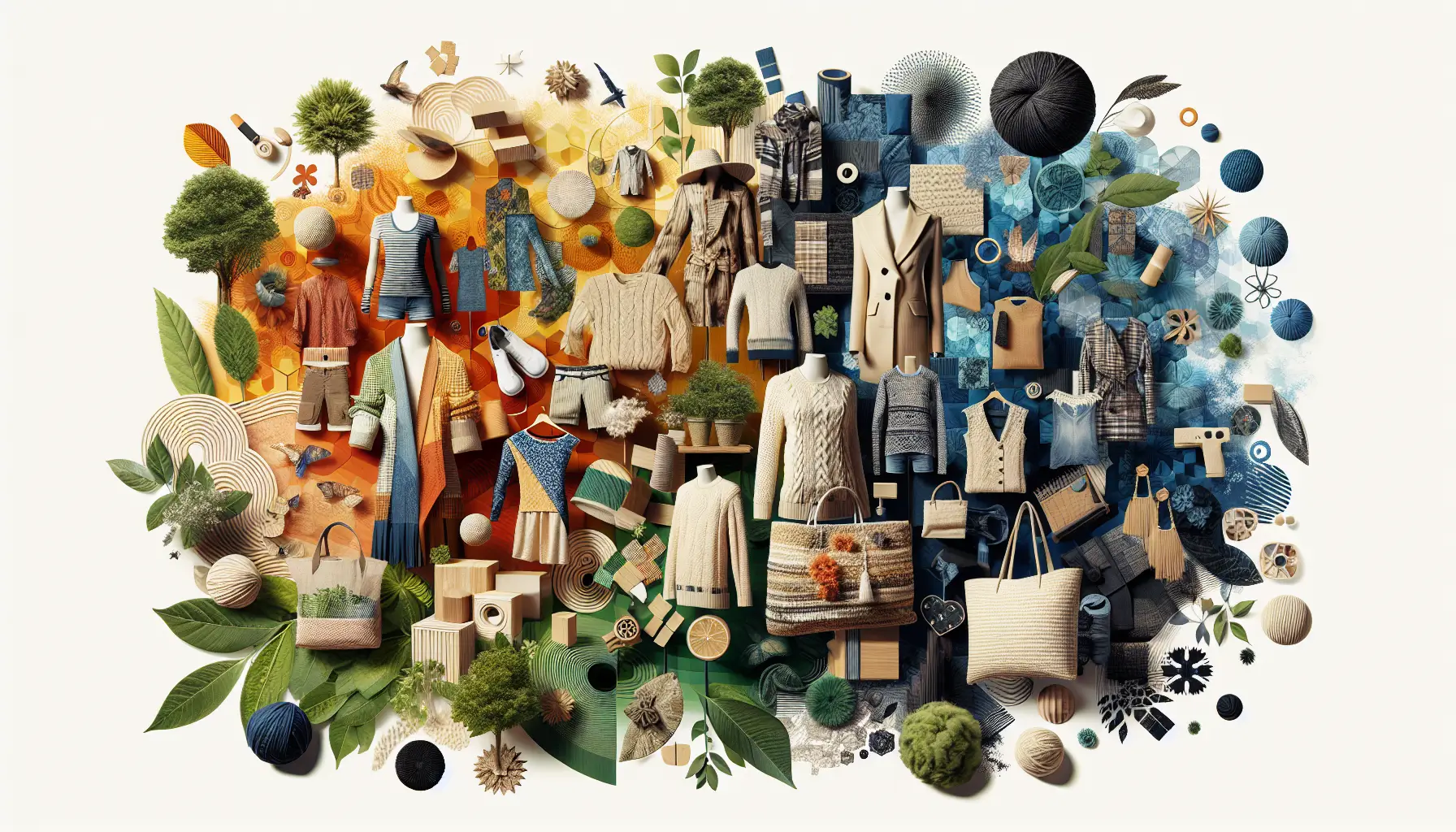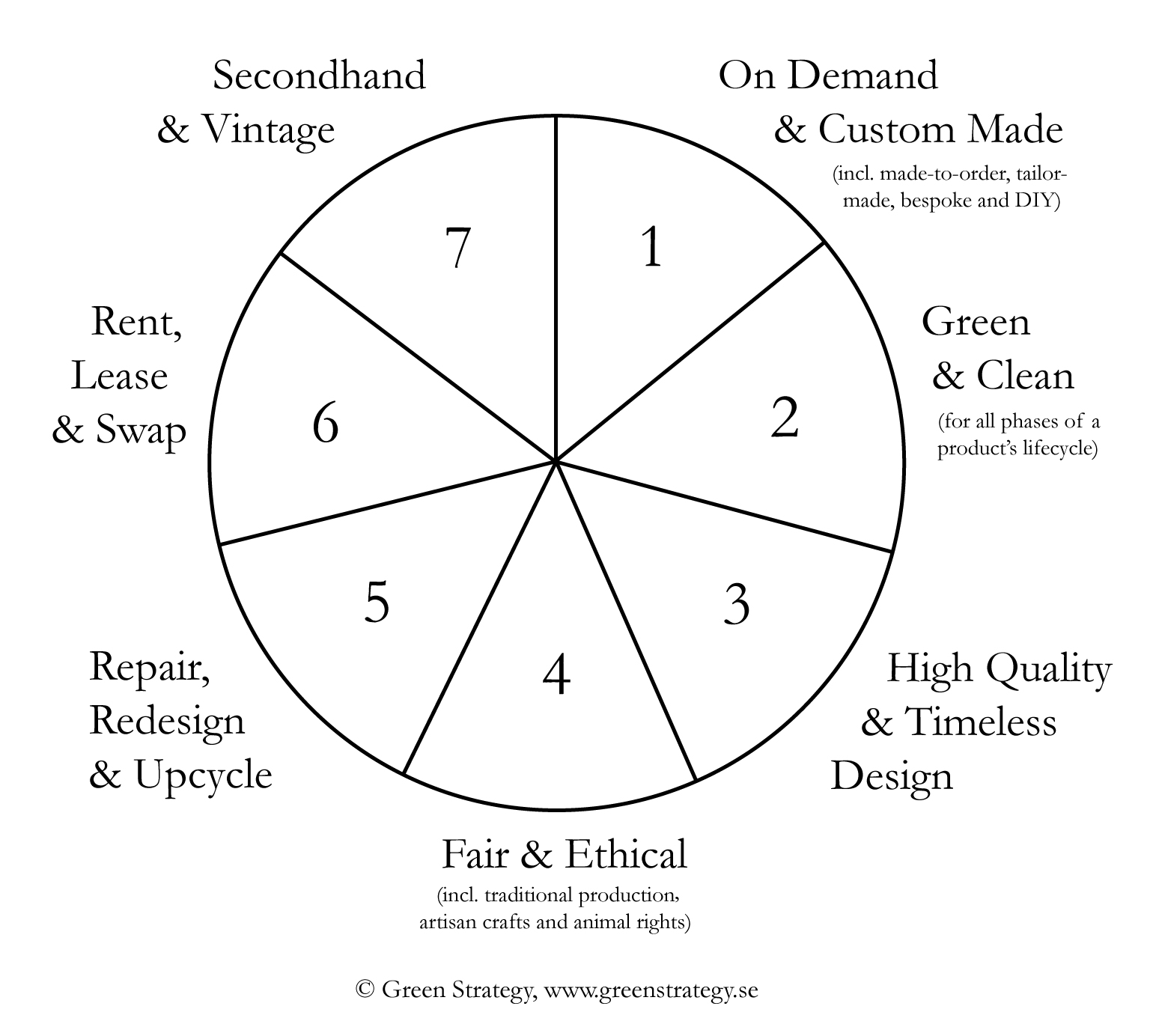Cape Town Sustainable Fashion Week: Highlighting Eco-friendly Innovations
Cape Town Sustainable Fashion Week: Highlighting Eco-friendly Innovations
Blog Article
Remain Ahead of the Curve by Exploring Innovative Style Trends
In a market as vibrant as style, staying ahead involves more than simply adhering to present patterns-- it demands an exploration of innovation. Smart fabrics, for example, are changing garments into functional work of arts, while 3D printing is changing layout processes with its customizable, waste-reducing capabilities. As sustainability comes to be a keystone, advancements like environment-friendly materials and circular style methods are reshaping ecological obligation - Cape Town Sustainable Fashion. Additionally, the convergence of modern technology and fashion heralds a brand-new age of consumer involvement. Exactly how, then, can these arising patterns redefine the future of style, and what ramifications do they hold for brands looking for to flourish in this advancing landscape?

Embracing Smart Textiles
In the last few years, the style sector has witnessed a transformative change with the integration of wise fabrics, an advanced technology that blends technology with fabric. This evolution stands for not just a combination of appearances and functionality but also a significant jump towards sustainability and customization in vogue. Smart textiles, also referred to as e-textiles, embed advanced electronics such as sensors and conductive strings within the textile, making it possible for garments to interact with the setting or the user.
These fabrics are created to keep an eye on physiological parameters, such as heart rate or body temperature level, providing real-time wellness analytics. Past health and wellness applications, wise textiles are likewise being made use of for flexible clothes, which can change shade or pattern in feedback to ecological stimuli, thus offering a vibrant fashion experience.
Furthermore, the development of energy-harvesting fabrics that produce power from movement or sunshine is leading the way for self-sufficient wearable modern technology. This development is attracting ecologically conscious customers and designers intending to minimize the ecological impact of fashion. As r & d in this field advance, clever textiles are anticipated to end up being increasingly widespread, reshaping the landscape of modern-day fashion with their multifunctional capacities.
The Increase of 3D Printing
Revolutionizing the production landscape, 3D printing has arised as a game-changer in the garment industry. This advanced modern technology has made it possible for designers to press the boundaries of creative thinking, producing detailed and customized garments that were formerly unimaginable. By leveraging electronic layout and additive manufacturing, 3D printing promotes the creation of intricate geometries and patterns, allowing designers to trying out new structures and frameworks.
A noteworthy benefit of 3D printing in vogue is its ability to create on-demand, minimizing waste and decreasing supply demands. This efficiency not just maximizes production processes yet additionally allows for quick prototyping, making it possible for developers to bring their visions to life in a shorter duration. Furthermore, 3D printing supports personalization to a level unparalleled by traditional approaches, offering one-of-a-kind designs and customized fits tailored to private customer choices.
The surge of 3D printing has actually additionally equalized style, making it accessible to emerging designers who can now fabricate premium items without considerable economic investment in typical production framework. As modern technology proceeds to breakthrough, the apparel industry is positioned to harness the full capacity of 3D printing, checking out brand-new materials and methods that will definitely redefine exactly how fashion is conceived and produced.
Sustainable Style Technologies
As the garment industry comes to grips with the pressing need for environmental duty, lasting fashion developments have arised at the center of transformative modification. The growing awareness of eco-friendly effect has fueled a change in the direction of even more eco-conscious methods and materials. Brands and developers are currently prioritizing sustainability, including techniques that reduce waste and reduce carbon impacts.
One considerable development is the surge of circular fashion, which stresses recycling and upcycling to prolong the lifecycle of garments. This approach not just decreases waste yet likewise encourages customers to adopt an extra mindful approach to garments consumption. In addition, the use of lasting materials, such as natural cotton, hemp, and recycled polyester, has obtained traction. These products require much less water and energy throughout production, dramatically reducing ecological impact.
An additional breakthrough depends on the adoption of ingenious dyeing strategies that utilize waterless procedures or natural dyes, consequently lowering the large amounts of water and chemicals commonly used in textile dyeing. Moreover, advancements in biotechnology have caused the production of lab-grown natural leather and fabrics, providing cruelty-free and eco-friendly alternatives to traditional products. With these pioneering efforts, the fashion market is making significant strides in the direction of an extra lasting future.

Tech-Integrated Garments
Tech-integrated clothing represents an innovative fusion of style and innovation, reshaping how people communicate with their clothes. This cutting-edge domain name is marked by the inclusion of clever textiles and ingrained electronic components, boosting both performance and aesthetic allure. From physical fitness trackers embedded in sports apparel to heated coats managed through smart device applications, tech-integrated apparel uses consumers extraordinary comfort and adaptability.
Introducing brand names are driving this pattern, concentrating on producing garments that react to environmental stimulations or customer commands. For example, some garments can transform shade or pattern in action to temperature shifts, while others incorporate biometric sensors to monitor health metrics like heart price or stress and anxiety degrees. The smooth combination of technology into fabrics additionally reaches environmental sustainability, with efforts to develop self-cleaning textiles or garments that get used to climate condition, thus minimizing the demand for numerous layers.
Additionally, the introduction of wearable technology is not simply restricted to clothes but includes devices like watches and eyewear, more widening the range of tech-integrated style. As the market remains to introduce, the capacity for customization and customization in clothing grows, using customers distinct, tech-enhanced fashion experiences that deal with their individual demands and preferences.
Future of Virtual Style
In current years, the future of virtual style has become a transformative force within the market, leveraging developments in electronic innovation to redefine just how fashion is developed, experienced, and taken in. By incorporating enhanced fact (AR), online fact (VR), and 3D layout tools, developers can currently craft immersive and interactive experiences that go beyond conventional style boundaries. Online style permits the production of garments that exist entirely in electronic settings, providing countless possibilities for advancement without the limitations navigate to these guys of physical production.
This electronic change not only provides possibilities for creative expression however additionally addresses sustainability concerns intrinsic in typical fashion methods. Cape Town Sustainable Fashion. By removing the need for physical resources, online style lowers waste and minimizes carbon impacts. Additionally, the rise of digital style straightens with the increasing consumer need for individualized and unique experiences, as online garments can be personalized and customized to specific choices effortlessly

Verdict
The fashion market's future lies in the assimilation of lasting practices and cutting-edge technologies. Digital style is poised to redefine customer interactions.
In current years, the style market has experienced a transformative shift with the combination of clever fabrics, a cutting-edge advancement that mixes technology with fabric.As view the style industry grapples with the pushing demand for ecological responsibility, sustainable style advancements have actually emerged at the leading edge of transformative modification.In recent years, the future of online fashion has emerged as a transformative force within the market, leveraging improvements in electronic innovation to redefine exactly how style is additional info produced, experienced, and taken in. The increase of online fashion aligns with the enhancing consumer demand for unique and customized experiences, as virtual garments can be customized and customized to specific choices with simplicity.
The fashion industry's future lies in the integration of cutting-edge modern technologies and lasting methods.
Report this page